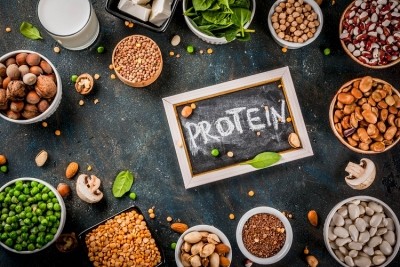Processed plant-based meat: Clearer communication on the horizon, predict experts

In 2024, consumers will want to explore what processed and ultra-processed food (UPF) means in the context of plant-based and alternative products.
'Trust the process' is a crucial trend for 2024, market intelligence company Mintel detailed in its Global Food and Drink Trends report. Clear communication will become essential for consumers to make educated judgements about how processed and UPFs food and drink fit into their diets.
"Plant-based meat is commonly thought of as a UPF by consumers," Seren Kell, Senior Science and Technology Manager at Good Food Institute (GFI) Europe, told FoodNavigator.
UPF and health: The great debate
There has been growing controversy in 2023 following concerns over conflicts of interest between researchers working in the area of UPFs and their associations with the companies that produce them.
Plant-based meat is commonly thought of as a UPF by consumers. “However, research indicates that being classified as UPF doesn't necessarily determine how "healthy" a product is,” said Kell.
"When we examine plant-based meat using the usual criteria for UPFs, it becomes clear that it doesn't neatly align," Kell added. UPFs are typically characterised as high in calories, sugar and saturated fat and low in fibre. "None of these characteristics apply to plant-based meat," Kell added.
The food and beverage sector is increasingly scrutinising processing applications in production. Stoked by conversations about high and excessive processing or UPF, interest and concerns about processing will encourage consumers to examine ingredients, nutrition, and manufacturing techniques thoroughly. Given this, the phrase "ultra processing" is the most recent development of concepts like "junk food" and "clean label."
"Many consumers are worried about UPFs and health, and as a result, some question the 'healthiness' of plant-based meat," said Kell. However, recent market data reveals a 21% growth in the sales of plant-based meat across 13 European countries between 2020 and 2022, so demand is high for these sustainable options.
From 2024, more customers will be aware of the various processing levels due to media reporting, laws, and optional on-pack labelling, including ratings from organisations like Nova or Siga. Better awareness will likely incentivise individuals to reevaluate how often and when they eat processed items and consider processing levels when making food and drink choices.
Processing and nutrition
Although the adage "all things in moderation" is often linked to highly processed goods, minimally processed food and drink have room to grow if they emphasise the benefits of food processing methods like improved sustainability, heightened nutrition, and decreased contaminant formation.
Expansion opportunities are particularly true when companies communicate the advantages of processing in terms that customers can comprehend. Companies that sell minimally processed goods, such as fresh baked goods, frozen vegetables, and natural canned soup, ought to explain how processing enhances the nutritional value, lengthens the shelf life, or lessens the environmental effect of their products.
"Many types of processed foods and processing techniques are valued by consumers on positive grounds linked to attributes like tradition, health and naturalness. Examples include stone-ground flour, cold-pressed oil and fermented dairy products," Megan Stanton, Associate Director at Mintel Food & Drink, said in the report.
Brands that manufacture highly, excessively, or very processed food and drink items will likely also focus on communicating to customers the happiness and satisfaction these products bring them. Findings from markets with front-of-pack labels indicating high fat, sugar, and salt (HFSS) content demonstrate that providing consumers with additional information does not always lead to their giving up on particular food and drink categories, particularly beloved items like sweets, biscuits, and salty snacks.
Consumers want more information on processing
Six years on from Mintel's Full Disclosure trend in 2018, which detailed consumers' interest in wanting to know more about their food and drink origins, in 2024 and beyond, consumers will want to know how processing ingredients improves products in terms of their nutritional and organoleptic profiles.
The Trust the Process is an evolution of Mintel's Savvy Sustenance 2023 trend, recommending that food and drink brands emphasise the value of nutrition in industry products. Looking forward, processed brands can find a formidable spot in the market by detailing how their production methods maintain the natural ingredients' inherent nutrition.
A study published in The Lancet breaking down UPFs by sub-category found that the processing level was not associated with harmful outcomes for most food groups that were usually ultra-processed. They did not find any evidence that the processing level of sweets and desserts, ready meals, savoury snacks and plant-based meat had any bearing on health outcomes.
"We can interpret from this that processing level in these categories didn't meaningfully change the risk associated with most UPF products: a homemade cake and an ultra-processed cake would carry the same health implications," Kell detailed. Two categories of UPF foods explored in the study were significantly associated with negative health outcomes, however: processed conventional meat and sugary and sweetened drinks.
Connecting processed ingredients with plant-based alternative products
More information and education are needed to give consumers an accurate understanding of the relationship between processed ingredients and plant-based and alternative products.
"As with conventional meat products, there is a lot of variation in the level of processing different plant-based meat options undergo," said Kell. Some products available in Europe today fit the Nova 1 'minimally processed' definition, while others fall into the Nova 4 'ultra-processed' category.
However, Kell noted that plant-based meat, for example, can benefit consumers, depending on how the product varieties are made. The processing techniques used to make plant-based meat can offer advantages in bioavailability compared with their raw ingredients by reducing the presence of anti-nutrients and enhancing other features that improve bioavailability and other important qualities.
Several leading nutrition organisations have raised concerns that the Nova categorisation system could unfairly bias people against healthy and accessible foods like wholemeal bread and fortified cereals. "As evidence builds about the nutritional benefits of plant-based meat, particularly in comparison to processed conventional meat, companies and health experts must communicate this to consumers to help them make informed choices," detailed Kell.
Reducing processed ingredients in alternative products
As the nutritional benefits of plant-based foods have entered the spotlight, companies and researchers in the field are increasingly focused on nutrition as they develop next-generation products.
Almost a third (28%) of Spanish consumers said they would eat more plant-based meat or dairy alternatives if they were less processed, Mintel’s results found. European consumers will also consider minimally processed food and drink that helps them raise their fruit and vegetable intake. When grocery shopping, 33% of Irish consumers confirmed that food that adds to their fruit and vegetable intake is an important consideration.
In France, L'Atelier V Yellow Lentil Mince with Coconut, Curry, Coriander and Turmeric is made with organic legumes rich in protein, fibre and minerals. The vegan mince's packaging includes a 4 out of 7 processing rating on the Siga scale, indicating gourmet-level processing below the UPF definition.
"Research is ongoing to maximise the micronutrient content and availability in plant-based meat, overcoming bioavailability issues sometimes seen with plant-based foods," said Kell. For instance, researchers at the University of Leeds are investigating ways to remove anti-nutrients from various pulses, cereals and oilseeds to maximise the digestibility of the protein and micronutrients within them.
























